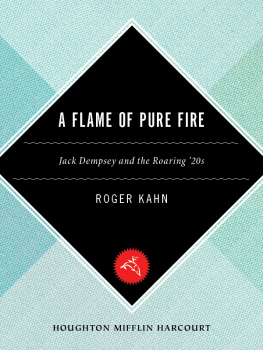Jack Du Brul - Deep Fire Rising
Here you can read online Jack Du Brul - Deep Fire Rising full text of the book (entire story) in english for free. Download pdf and epub, get meaning, cover and reviews about this ebook. genre: Detective and thriller. Description of the work, (preface) as well as reviews are available. Best literature library LitArk.com created for fans of good reading and offers a wide selection of genres:
Romance novel
Science fiction
Adventure
Detective
Science
History
Home and family
Prose
Art
Politics
Computer
Non-fiction
Religion
Business
Children
Humor
Choose a favorite category and find really read worthwhile books. Enjoy immersion in the world of imagination, feel the emotions of the characters or learn something new for yourself, make an fascinating discovery.

- Book:Deep Fire Rising
- Author:
- Genre:
- Rating:3 / 5
- Favourites:Add to favourites
- Your mark:
- 60
- 1
- 2
- 3
- 4
- 5
Deep Fire Rising: summary, description and annotation
We offer to read an annotation, description, summary or preface (depends on what the author of the book "Deep Fire Rising" wrote himself). If you haven't found the necessary information about the book — write in the comments, we will try to find it.
Deep Fire Rising — read online for free the complete book (whole text) full work
Below is the text of the book, divided by pages. System saving the place of the last page read, allows you to conveniently read the book "Deep Fire Rising" online for free, without having to search again every time where you left off. Put a bookmark, and you can go to the page where you finished reading at any time.
Font size:
Interval:
Bookmark:
Jack Du Brul
Deep Fire Rising
SUNDA STRAIT, INDONESIA AUGUST 26, 1883
Standing at the rail of the mail steamer Loudon, the watcher spat into the clear sea and cursed his stupidity as the tropical town of Anjer receded behind the ship. The tower of the Fourth Point lighthouse already resembled a spindle on the horizon.
He should have taken his chances ashore on Java Island when the ship made an unscheduled stop on its way from the Dutch Indies capital of Batavia to Padang on the west coast of Sumatra. Now he was trapped in a race across the Sunda Strait with six hundred other souls, and he alone knew what was coming, what the black clouds roiling on the skyline would bring.
Had he stayed on Java, maybe he could have moved far enough inland to survive the coming days. But he had decided to remain with the ship as it dashed to the Sumatran town of Telok Betong at the head of Lampong Bay. Over the past weeks he had cached food and water in the hills overlooking the bay to witness the approaching cataclysm. That was his job what hed been sent to the Dutch East Indies to do to chronicle what he knew was going to be the greatest natural disaster in recorded history.
Ignoring the heat of the tropics, the man traveling under the name Han was dressed for his mountain homeland in wool trousers and a wool shirt. His boots reached almost to his knees and showed tufts where hed cut away their yak-fur trim. Tucked into the satchel he carried was a simple cloak made of leather and embroidered by his wife many winters ago.
He was shorter than the Europeans aboard the 212-foot ship but taller than the 300 native convicts shackled in the forecastle under guard by 160 Dutch soldiers. He had a compact build, broader across the chest and shoulders than the Chinese laborers the ship had picked up at Anjer. His face was walnut brown and his dark eyes peeked out from pouches of wrinkles that partially obscured their Asian cast.
From a pants pocket he pulled one of his prized possessions, a gold watch on an ornate chain. He had set it this morning against the government clock in Batavia. It was three oclock. They should reach Telok Betong in four hours.
He was certain they wouldnt.
The watcher turned from where the island of Java receded in the distance and peered over the port rail. The black clouds continued to build in the west, towering ever higher, flattening on top like an anvil. Even at this range the dark mass dominated the sky, an angry, burning column as evil as anything he had ever seen. It looked as if night had ripped a hole in the daylight and was pouring through. In the two hours since it appeared, the cloud had grown many times higher than Chomolungma, the tallest peak in the watchers native Himalaya Mountains. And already it was starting to come down to earth.
He brushed his fingers along the burnished teak railing and felt a layer of fine grit. Not the seedlike granular discharge from the Loudons coal-fired boiler, but a powder so light that it vanished in the breeze of the vessels six-knot speed.
The ships master, Captain T. H. Lindemann, must have had an inkling of what was happening because he soon ordered deckhands up the rigging to set sails on the Loudons two masts to augment her single fixed screw. Soon she was making a respectable eight knots, sailing as close to the wind as she could.
Earlier in the summer, the Loudon had been taking sightseers into the Sunda Strait to witness the island that was slowly blowing itself into the atmosphere. And then just a few weeks ago, Lindemann had returned to the island to land a party of scientists, only to be driven back by ash and the burning heat exploding from the earths core. At the time, the scientists had assured the captain that the eruption would soon come to a sputtering halt. With more than one hundred active volcanoes in the East Indies to learn from, Lindemann had no reason to doubt their opinion. Now, like the enigmatic watcher clutching the port rail, he felt that the scientists might be wrong. He gave the island a wide berth.
Creeping into the wide mouth of Lampong Bay brought no relief to the ship. Ash continued to rain down, even though the Loudon was forty kilometers from its source. Those crewmen not up in the masts were ordered to sweep the fine powder overboard. Lindemann had his steward, an old Chinese seaman named Ping, constantly wiping at the bridge windows with a dry cloth to keep them clear.
The sea had grown eerily still under the weight of ash, a surging mantle that parted reluctantly at the Loudons steel bows and closed immediately at the stern. The layer of ash was at least two feet thick and deepened steadily, like snow in a New England blizzard. Only this snow was pulverized rock that floated and remained warm to the touch long after it had been ejected from within the earth.
The chained prisoners in the forecastle moaned pitiably with each fresh gout of ash and at the increasing rattle of fist-sized pumice stones that peppered the ships hull and deck.
At five p.m. it was as if the sky had been swallowed.
No light reached the ship, not the setting sun nor the first blush of the moon that had been near full the night before. There would be no stars. The bizarre atmospheric conditions made transmission on the newly installed wireless telegraph impossible. The Loudon was alone.
Two hours later they approached the town of Telok Betong. The lookout in the forward masthead could see nothing of the town. Ash had covered it completely and smothered the lights of a population of five thousand. Cautiously Lindemann dropped anchor in six fathoms of water. Nearby lay the side-wheeled Berouw, a small gunboat that regularly patrolled these waters for pirates. Lindemann ordered the Loudons sails lowered but had the chief engineer keep a head of steam in her boiler. He waited an hour for the lighters from shore to transfer the Chinese laborers hed picked up at Anjer.
When hed left his mountain village Hans orders had been explicit as to location and time, but vague when it came to the reason for his mission. Hed simply been told to find a place a suitable distance above sea level at the head of Lampong Bay and await what was to occur on the morning of August 27. He was to write down everything he observed in the ancient journal hed been provided.
Shortly after his arrival in the Dutch East Indies in late July, hed understood what he was there to witness. Unimaginable death and destruction. The island volcano churning in the middle of Sunda Strait had been erupting since the morning of May 20. That had been his first startling discovery since leaving his homeland. The second shock came when he realized hed left Tibet a full week before the volcano first rumbled to life. Hed been told by the priests whod sent him that they guarded a powerful oracle, but he couldnt understand how the prophecy about an event many thousands of leagues from their home could be so accurate. What was apparent was that they expected an even worse explosion in he checked his pocket watch seven hours.
His most strict order from the oracles priests forbade him from interfering with the natural development of events. He was a witness only, a watcher prohibited from warning any who were going to be caught up in the inevitable catastrophe. Han had followed that mandate implicitly. But knowing the danger he was facing dispelled his obligation to this mission. It was bad enough they hadnt fully prepared him for what hed been asked to observe. Now he feared he was going to become a victim. Hed made his travel arrangements from Batavia to Lampong Bay unaware that the Loudon would take the five-hour detour to Anjer. That delay was going to cost him his life if he didnt do something.
Font size:
Interval:
Bookmark:
Similar books «Deep Fire Rising»
Look at similar books to Deep Fire Rising. We have selected literature similar in name and meaning in the hope of providing readers with more options to find new, interesting, not yet read works.
Discussion, reviews of the book Deep Fire Rising and just readers' own opinions. Leave your comments, write what you think about the work, its meaning or the main characters. Specify what exactly you liked and what you didn't like, and why you think so.







